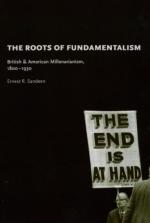|
This section contains 3,639 words (approx. 13 pages at 300 words per page) |

|
The yearning for a utopia where one is free from want and where peace and prosperity reign supreme has been very much an integral part of Chinese religion since pre-Qin times (before 221 BCE). Confucius (551–479 BCE) maintained the notion of a golden age when Sage-Kings such as Yao and Shun reigned effortlessly in perfect harmony. Laozi also espoused the idea of small agricultural communities where life was simple and government was noninterfering. The Moist concept of undifferentiated and nondiscriminating love was expressed in the form of datong ("grand unity" or "great equality"), which had been incorporated into the Confucian text Liji (The classic of rites). However, all these utopian states were understood to have existed in the distant past. As time progressed, the conceptualization of utopia became more concrete and contemporary. During the Qin-Han period (221 BCE–220 CE), mysterious lands in the extreme east and west...
|
This section contains 3,639 words (approx. 13 pages at 300 words per page) |

|



